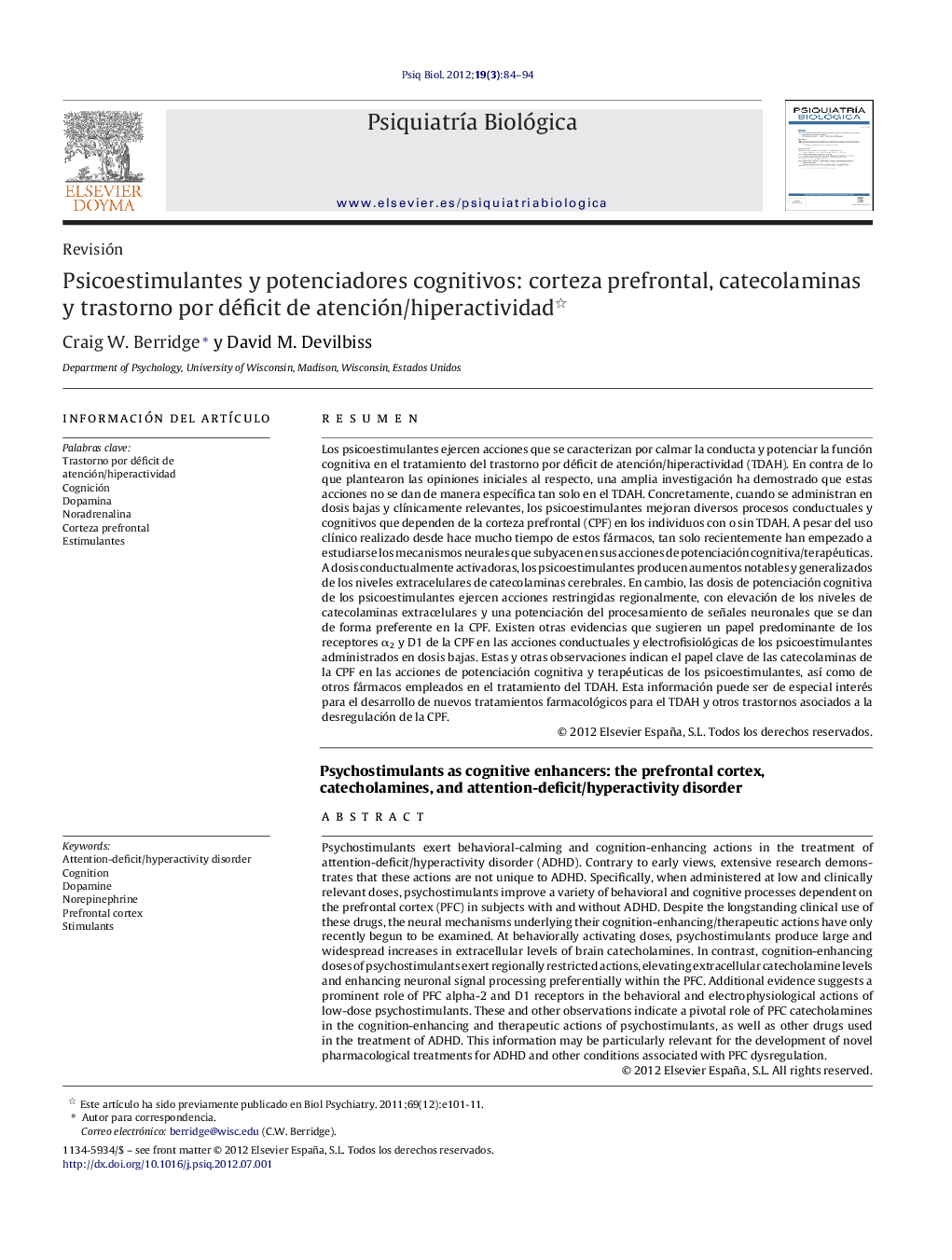| Article ID | Journal | Published Year | Pages | File Type |
|---|---|---|---|---|
| 4188675 | Psiquiatría Biológica | 2012 | 11 Pages |
Abstract
Psychostimulants exert behavioral-calming and cognition-enhancing actions in the treatment of attention-deficit/hyperactivity disorder (ADHD). Contrary to early views, extensive research demonstrates that these actions are not unique to ADHD. Specifically, when administered at low and clinically relevant doses, psychostimulants improve a variety of behavioral and cognitive processes dependent on the prefrontal cortex (PFC) in subjects with and without ADHD. Despite the longstanding clinical use of these drugs, the neural mechanisms underlying their cognition-enhancing/therapeutic actions have only recently begun to be examined. At behaviorally activating doses, psychostimulants produce large and widespread increases in extracellular levels of brain catecholamines. In contrast, cognition-enhancing doses of psychostimulants exert regionally restricted actions, elevating extracellular catecholamine levels and enhancing neuronal signal processing preferentially within the PFC. Additional evidence suggests a prominent role of PFC alpha-2 and D1 receptors in the behavioral and electrophysiological actions of low-dose psychostimulants. These and other observations indicate a pivotal role of PFC catecholamines in the cognition-enhancing and therapeutic actions of psychostimulants, as well as other drugs used in the treatment of ADHD. This information may be particularly relevant for the development of novel pharmacological treatments for ADHD and other conditions associated with PFC dysregulation.
Keywords
Related Topics
Health Sciences
Medicine and Dentistry
Psychiatry and Mental Health
Authors
Craig W. Berridge, David M. Devilbiss,
